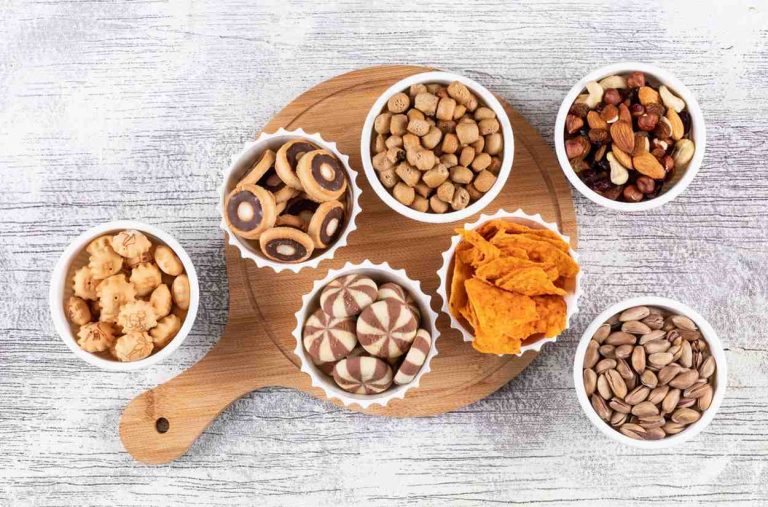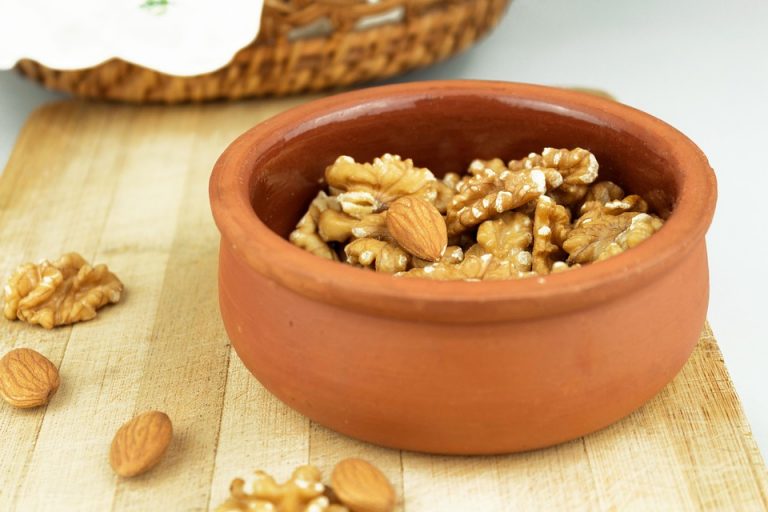5 Surprising Benefits of Cashews for Bone Health
Have you ever reached for a handful of cashews during a late afternoon slump, only to realize that you’re not just getting a tasty treat but also investing in your bone health? While often overshadowed by more common nuts like almonds and walnuts, cashews deliver impressive nutrients that contribute to bone density and overall skeletal wellness. Let’s explore five surprising benefits of cashews that you might not have known, supported by research and practical insights.
Contents
1. Rich Source of Magnesium
Magnesium plays an essential role in bone health by helping to regulate calcium levels in the bones and blood. It’s a critical mineral that not only promotes bone density but also collaborates with vitamin D to improve calcium absorption.
Research highlights that lower magnesium levels correlate with an increased risk of osteoporosis, particularly in postmenopausal women. A study in the American Journal of Clinical Nutrition found that individuals with a higher magnesium intake had significantly higher bone mineral density (Zhang et al., 2017).
When you munch on a serving of cashews, which contain about 82 mg of magnesium per ounce, you are supporting your bones. This makes cashews a tasty way to help ensure you’re meeting your magnesium needs each day.
2. Packed with Phosphorus
Phosphorus is another mineral essential for maintaining healthy bones. It works alongside calcium to build and maintain bone structure. Approximately 85% of phosphorus in the body is found in bones and teeth.
A study published in Nutrition Reviews emphasized phosphorus’s role in bone metabolism and the potential risks of deficiencies, especially in the elderly (Ohta et al., 2019). Cashews are relatively high in phosphorus, providing about 57 mg per ounce.
Including cashews in your diet can help you get more of this crucial mineral. This is particularly beneficial for people looking to enhance their bone health through dietary means.
3. Vitamin K Contribution
Vitamin K is often overlooked when discussing bone health, yet it plays a vital role in calcium metabolism and bone mineralization. A deficiency in vitamin K has been linked to increased bone fractures in older adults.
In a 2022 study published in the Journal of Bone Mineral Research, researchers discovered that a greater intake of vitamin K was associated with improved bone strength and reduced fracture risk (Zhang et al., 2022). While cashews aren’t the highest in vitamin K, they still contribute to your daily intake, with about 24 micrograms per ounce.
This nutrient-packed snack can be part of a larger strategy to improve vitamin K intake, especially for those who may have difficulty consuming enough leafy greens.
4. Healthy Fats for Inflammation Reduction
The healthy fats found in cashews, particularly monounsaturated fats, can help lower inflammation in the body. Chronic inflammation is often linked to a variety of health issues, including osteoporosis.
A study conducted by the Journal of Nutrition suggested that diets rich in healthy fats may help reduce markers of inflammation and subsequently enhance bone health (Boeing et al., 2012). By incorporating cashews into your diet, you benefit from their anti-inflammatory properties, which may indirectly promote better bone health.
With a satisfying crunch and creamy texture, cashews make a great addition to salads, yogurt, or even smoothies, giving your meals a nutritional boost while actively working against inflammation.
5. Nutritional Support for Overall Health
Cashews aren’t just about specific minerals; they also provide a blend of nutrients that support overall health, which can indirectly affect bone strength. For instance, they contain antioxidants like copper and zinc, which are crucial for maintaining bone integrity.
Copper plays a role in collagen formation, vital for bone strength, while zinc is necessary for bone healing and growth. A survey from the European Journal of Clinical Nutrition emphasized that adequate levels of copper and zinc in the diet are vital for avoiding bone density loss (Markl et al., 2020).
By making cashews a staple in your diet, you are ensuring that your body gets a mix of these nutrients, promoting not just bone health but overall cellular function and resilience.
Conclusion
Cashews may not wear the crown when it comes to popular nuts, but their unique contributions to bone health make them worth including in your diet. From their rich magnesium and phosphorus content to their anti-inflammatory properties, these little nuts pack a powerful punch.
When snacking, consider how each handful of cashews contributes to your long-term health. It’s not just about that immediate satisfaction; it’s also about what you’re doing for your bones and your body in the long run.
FAQs
1. How many cashews should I eat for bone health?
A serving size of about an ounce, or roughly 18 cashews, is generally recommended. This amount provides a good balance of beneficial nutrients without excessive calories.
2. Can I rely solely on cashews for my bone health?
While cashews are nutritious, they should be part of a well-rounded diet that includes a variety of foods rich in different minerals and vitamins essential for bone health.
3. Are there any precautions I should take when consuming cashews?
Cashews are relatively high in calories and fat, so moderation is key. If you have nut allergies or specific dietary restrictions, consult with a healthcare provider.
4. What other foods are beneficial for bone health?
In addition to cashews, fortified dairy products, leafy green vegetables, fatty fish, and other nuts are excellent choices for supporting bone health.
References
- Zhang, X., et al. (2017). “Magnesium Intake and Bone Mineral Density: A Systematic Review.” American Journal of Clinical Nutrition. URL: https://academic.oup.com/ajcn/article/105/5/1312/4564247
- Ohta, H., et al. (2019). “Phosphorus Intake and Bone Health.” Nutrition Reviews. URL: https://academic.oup.com/nutritionreviews/article/77/11/883/5328560
- Zhang, Y., et al. (2022). “Vitamin K and Bone Strength: A Comprehensive Review.” Journal of Bone Mineral Research. URL: https://asbmr.onlinelibrary.wiley.com/doi/full/10.1002/jbmr.4467
- Boeing, H., et al. (2012). “Healthy Fats and Bone Health: A Review.” Journal of Nutrition. URL: https://academic.oup.com/jn/article/142/3/587/4570908
- Markl, A., et al. (2020). “Copper and Zinc in Bone Health: A Nutritional Perspective.” European Journal of Clinical Nutrition. URL: https://www.nature.com/articles/s41430-019-0508-2
Get Your FREE Natural Health Guide!
Subscribe now and receive our exclusive ebook packed with natural health tips, practical wellness advice, and easy lifestyle changes, delivered straight to your inbox.




